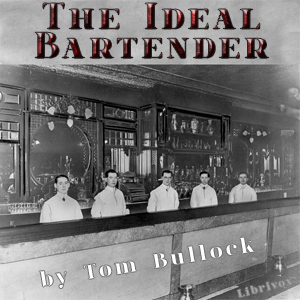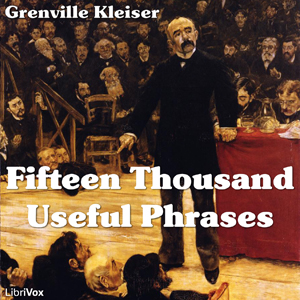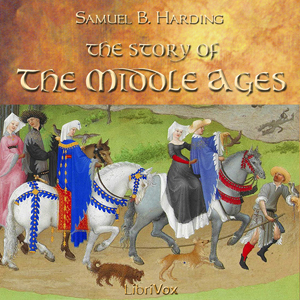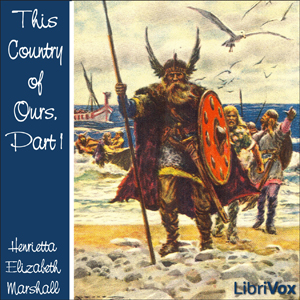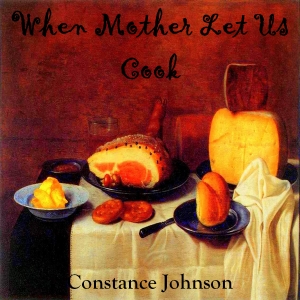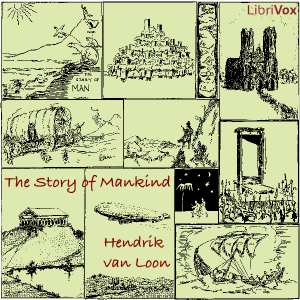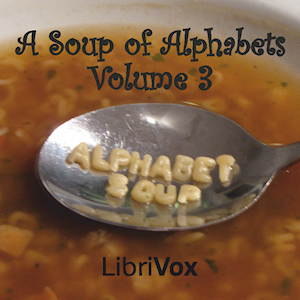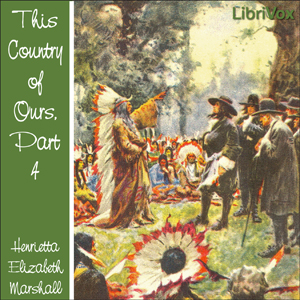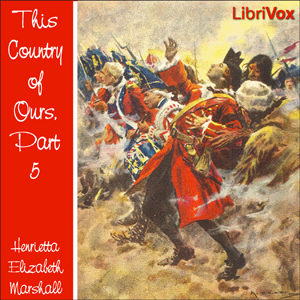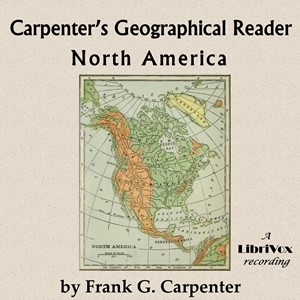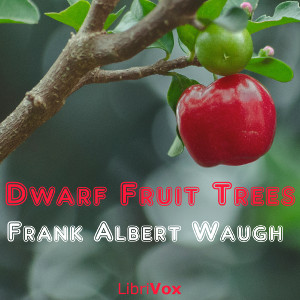The book was written by Tom Bullock, a well-known bartender at the St. Louis Country Club. His skills as a bartender were so remarkable that a libel suit hinged on the excellence of his drinks. In The Ideal Bartender, Tom collects some of his best known beverage recipes.
9 episodes
A Practical Handbook of Pertinent Expressions, Striking Similes, Literary, Commercial, Conversational, and Oratorical Terms, for the Embellishment of Speech and Literature, and The Improvement of the Vocabulary of Those Persons Who Read, Write, and Speak English
Alt-BC: Lucy Burgoyne
165 episodes
Intended for a youthful audience, The Story of the Middle Ages, published in 1906, tells the history of the Middle Ages in simple and entertaining fashion, and helps to explain the influence of the Middle Ages on modern times. Topics covered include the rise of the Christian church, Feudalism, Charlemagne, the Crusades, the Hundred Years' War, and the daily life of peasant, noble, and clergy. (Summary by Kara)
19 episodes
Another fine history book for children! Published in 1917, Marshall’s book of stories from the history of the United States begins with accounts of exploration and settlement, and ends with the presidency of Woodrow Wilson.
This is Part 1: Stories of Explorers and Pioneers, from Leif Ericson to Sir Walter Raleigh. Read along and view the original illustrations at mainlesson.com.
Part 2: http://librivox.org/this-country-of-ours-part-2-by-h-e-marshall/
Part 3: http://librivox.org/this-country-of-ours-part-3-by-h-e-marshall/
Part 4: http://librivox.org/this-country-of-ours-part-4-by-h-e-marshall/
Part 5: http://librivox.org/this-country-of-ours-part-5-by-h-e-marshall/Part 6: http://librivox.org/this-country-of-ours-part-6-by-h-e-marshall/Part 7: http://librivox.org/this-country-of-ours-part-7-by-henrietta-elizabeth-marshall/(Summary by Kara)
12 episodes
A book of simple receipts for little folk with important cooking rules in rhyme together with handy lists of the materials and utensils needed for the preparation of each dish. (Summary from the text)
4 episodes
Relates the story of western civilization from earliest times through the beginning of the twentieth century, with special emphasis on the people and events that changed the course of history. Portrays in vivid prose the achievements of mankind in the areas of art and discovery, as well as the political forces leading to the modern nation-states. Richly illustrated with drawings by the author. Winner of the first Newbery Award in 1922, The Story of Mankind has introduced generations of children to the pageant of world history. (Summary from mainlesson.com)
65 episodes
A second helping of Alphabet Books! This collection has a wide-ranging variety of short books, and not only for younger readers, but also for young and not so young adults. Opening with a book based on the colorful language of London's street vendors, this collection winds its way through a book of tongue-twisters, two primers of nonsense poetry by the inimitable Edward Lear, and early readers from 19th century England. For older readers, there is the biting, sardonic humor of Hilaire Belloc's satirical alphabet verses. There is even a "Baseball ABC," a recording which will be released in time for the World Series playoffs! Soup's on! (Summary by Denny Sayers)
11 episodes
This third "stove-top" full of Alphabet Soups --again-- runs the fullest gamut! It ranges from country scenes (Alphabets of Fruits, Birds, Animals and "Country Scenes"), to just plain silliness (Absurd ABCs and Lear's Nonsense Alphabet #5), and finally, topical subjects (the Anti-Slavery Alphabet, the Alphabet of Celebrities --a list quite different when compared to our current crew-- and an Alphabet of Old Testament History). Have fun, and be sure to tune in for the fourth volume, which promises to break new ground in Alphabet Books! (Summary by Denny Sayers)
10 episodes
Another fine history book for children! Published in 1917, Marshall’s book of stories from the history of the United States begins with accounts of exploration and settlement, and ends with the presidency of Woodrow Wilson.
This is Part 2: Stories of Virginia, from chapter 13 (Captain John Smith) to chapter 21 (The Knights of the Golden Horseshoe). Read along and view the original illustrations at mainlesson.com.
Part 1: http://librivox.org/this-country-of-ours-part-1-by-he-marshall/
Part 3: http://librivox.org/this-country-of-ours-part-3-by-h-e-marshall/
Part 4: http://librivox.org/this-country-of-ours-part-4-by-h-e-marshall/
Part 5: http://librivox.org/this-country-of-ours-part-5-by-h-e-marshall/Part 6: http://librivox.org/this-country-of-ours-part-6-by-h-e-marshall/Part 7: http://librivox.org/this-country-of-ours-part-7-by-henrietta-elizabeth-marshall/(Summary by Kara)
9 episodes

Naturalis Historia (Latin for "Natural History") is an encyclopedia published circa AD 77-79 by Pliny the Elder. It is one of the largest single works to have survived from the Roman empire to the modern day and purports to cover the entire field of ancient knowledge, based on the best authorities available to Pliny. The work became a model for all later encyclopedias in terms of the breadth of subject matter examined, the need to reference original authors, and a comprehensive index list of the contents. The scheme of his great work is vast and comprehensive, being nothing short of an encyclopedia of learning and of art so far as they are connected with nature or draw their materials from nature. The work divides neatly into the organic world of plants and animals, and the realm of inorganic matter, although there are frequent digressions in each section. He is especially interested in not just describing the occurrence of plants, animals and insects, but also their exploitation (or abuse) by man, especially Romans. The description of metals and minerals is particularly detailed, and valuable for the history of science as being the most extensive compilation still available from the ancient world. (Summary from Wikipedia)This volume one includes the first five books, covering the following subjects:
Book 1- DedicationBook 2 - An account of the world and the elementsBooks 3 to 5 - An account of countries, nations, seas, towns, havens, mountains, rivers, distances, and peoples who now exist or formerly existed
35 episodes
Another fine history book for children! Published in 1917, Marshall’s book of stories from the history of the United States begins with accounts of exploration and settlement, and ends with the presidency of Woodrow Wilson.
This is Part 4: Stories of the Middle and Southern Colonies, from chapter 35 (The Founding of Maryland) to chapter 44 (The Founding of Georgia). Read along and view the original illustrations at mainlesson.com.
Part 1: http://librivox.org/this-country-of-ours-part-1-by-he-marshall/
Part 2: http://librivox.org/this-country-of-ours-part-2-by-h-e-marshall/
Part 3: http://librivox.org/this-country-of-ours-part-3-by-h-e-marshall/
Part 5: http://librivox.org/this-country-of-ours-part-5-by-h-e-marshall/Part 6: http://librivox.org/this-country-of-ours-part-6-by-h-e-marshall/Part 7: http://librivox.org/this-country-of-ours-part-7-by-henrietta-elizabeth-marshall/(Summary by Kara)
10 episodes
Another fine history book for children! Published in 1917, Marshall's book of stories from the history of the United States begins with accounts of exploration and settlement, and ends with the presidency of Woodrow Wilson.This is Part 5: Stories of the French in America, from chapter 45 (How the Mississippi was Discovered) to chapter 50 (The Rebellion of Pontiac). Read along and view the original illustrations at http://mainlesson.com/ .Part 1: http://librivox.org/this-country-of-ours-part-1-by-he-marshall/Part 2: http://librivox.org/this-country-of-ours-part-2-by-h-e-marshall/Part 3: http://librivox.org/this-country-of-ours-part-3-by-h-e-marshall/Part 4: http://librivox.org/this-country-of-ours-part-4-by-h-e-marshall/Part 6: http://librivox.org/this-country-of-ours-part-6-by-h-e-marshall/Part 7: http://librivox.org/this-country-of-ours-part-7-by-henrietta-elizabeth-marshall/(Summary by Kara)
6 episodes
Another fine history book for children! Published in 1917, Marshall's book of stories from the history of the United States begins with accounts of exploration and settlement, and ends with the presidency of Woodrow Wilson.This is Part 6: Stories of the Struggle for Liberty, from chapter 51 (The Boston Tea-Party) to chapter 63 (A Turning Point in the World's History). Read along and view the original illustrations at http://mainlesson.com/ .Part 1: http://librivox.org/this-country-of-ours-part-1-by-he-marshall/Part 2: http://librivox.org/this-country-of-ours-part-2-by-h-e-marshall/Part 3: http://librivox.org/this-country-of-ours-part-3-by-h-e-marshall/Part 4: http://librivox.org/this-country-of-ours-part-4-by-h-e-marshall/Part 5: http://librivox.org/this-country-of-ours-part-5-by-h-e-marshall/Part 7: http://librivox.org/this-country-of-ours-part-7-by-henrietta-elizabeth-marshall/(Summary by Kara)
13 episodes

Naturalis Historia (Latin for "Natural History") is an encyclopedia published circa AD 77-79 by Pliny the Elder. It is one of the largest single works to have survived from the Roman empire to the modern day and purports to cover the entire field of ancient knowledge, based on the best authorities available to Pliny. The work became a model for all later encyclopedias in terms of the breadth of subject matter examined, the need to reference original authors, and a comprehensive index list of the contents. The scheme of his great work is vast and comprehensive, being nothing short of an encyclopedia of learning and of art so far as they are connected with nature or draw their materials from nature. The work divides neatly into the organic world of plants and animals, and the realm of inorganic matter, although there are frequent digressions in each section. He is especially interested in not just describing the occurrence of plants, animals and insects, but also their exploitation (or abuse) by man, especially Romans. The description of metals and minerals is particularly detailed, and valuable for the history of science as being the most extensive compilation still available from the ancient world. (Summary from Wikipedia)This second volume includes books six to ten, covering the following subjects:Book 6 - An account of countries, nations, seas, towns, havens, mountains, rivers, distances, and peoples who now exist or formerly existedBook 7 - Man, his birth, his organization and the invention of the artsBook 8 - The nature of the terrestrial animalsBook 9 - The natural history of fishesBook 10 - The natural history of birds
42 episodes
In this charming 1877 book of grammar instruction for children, we are introduced to the nine parts of speech and learn about the rules that govern them in Grammar-Land."Judge Grammar is far mightier than any Fairy Queen, for he rules over real kings and queens down here in Matter-of-fact-land. Our kings and queens have all to obey Judge Grammar’s laws, or else they would talk what is called bad grammar; and then, even their own subjects would laugh at them, and would say: “Poor things! They are funny fellows, these nine Parts-of-Speech. You will find out by-and-by which you like best amongst them all. There is rich Mr. Noun, and his useful friend Pronoun; little ragged Article, and talkative Adjective; busy Dr. Verb, and Adverb; perky Preposition, convenient Conjunction, and that tiresome Interjection, the oddest of them all."
18 episodes
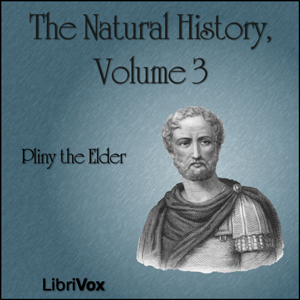
Naturalis Historia (Latin for "Natural History") is an encyclopedia published circa AD 77-79 by Pliny the Elder. It is one of the largest single works to have survived from the Roman empire to the modern day and purports to cover the entire field of ancient knowledge, based on the best authorities available to Pliny. The work became a model for all later encyclopedias in terms of the breadth of subject matter examined, the need to reference original authors, and a comprehensive index list of the contents. The scheme of his great work is vast and comprehensive, being nothing short of an encyclopedia of learning and of art so far as they are connected with nature or draw their materials from nature. The work divides neatly into the organic world of plants and animals, and the realm of inorganic matter, although there are frequent digressions in each section. He is especially interested in not just describing the occurrence of plants, animals and insects, but also their exploitation (or abuse) by man, especially Romans. The description of metals and minerals is particularly detailed, and valuable for the history of science as being the most extensive compilation still available from the ancient world. (Summary from Wikipedia)This third volume includes books eleven to fifteen, covering the following subjects:Book 11 - The various kinds of insectsBook 12 - The natural history of treesBook 13 - The natural history of exotic trees and an account of unguentsBook 14 - The natural history of the fruit treesBook 15 - The natural history of the fruit trees
26 episodes
This Ontario Public School textbook, published in 1922, contains some fascinating facts of a world which no longer exists. It seems politically incorrect in some of its descriptions by modern day standards. (Summary by David Lawrence)
65 episodes
"Office of the Light-House Board, Washington, D.C. July 1, 1881. The following Instructions are published for the guidance of light-keepers. They are required to read them carefully and attentively, and to refer to them whenever they are any doubt in regard to their duties or the manner of performing them. Each keeper and assistant keeper will be furnished with a copy, to be kept and used at the light-stations where they are employed; to be handed over to their successors when they are relieved or discharged or left at the light-stations in case there should be no successors. By order of the Light-House Board." ( from introductory notice to book)
7 episodes
This is another commentary by Matthew Henry, well known for his commentaries on the Bible, this one is on Genesis, the first book of the Bible. - Summary by fiddlesticks
54 episodes
The purpose of this book is to give to its readers a living knowledge of some of the wonders of the country and continent in which they live. Upon a personally conducted tour they are taken by the author through the most characteristic parts of the North American continent. They travel through the United States, British America, Mexico, and Central America, studying the most interesting features of life and work among the people of each country, learning how they are governed, and what they do in order to live. Much information is also given concerning the natural resources and the physical features of the countries visited. (From the preface)
46 episodes
In this book the children are taken by the author upon a personally conducted tour through the most characteristic parts of the South American continent. The book will, it is believed, aid in putting flesh and blood on the bones of the geographies, and will give a living interest to geographical study. (from the Preface)
45 episodes
The book tries to give its young readers a living knowledge of Europe. The author conducts tours through various parts of Europe giving a glimpse of the people and their lives and livelihoods. He includes as well information on the natural resources and physical geography of those many countries. Summary by BettyB and preface.
47 episodes
Written over a century ago, this comprehensive book offers insight into the methods used (still to this day, in spite of modern computers) to research and compile a family history. As stated in the preface of the book, "Strong emphasis is laid upon the importance of employing the historical method..." which is sorely lacking in today's computerized compilations. - Summary by Roger Melin
8 episodes

The book is intended to ground beginners in Structural Botany and the principles of vegetable life, mainly as concerns Flowering or Phanerogamous plants, with which botanical instruction should always begin; also to be a companion and interpreter to the Manuals and Floras by which the student threads his flowery way to a clear knowledge of the surrounding vegetable creation. Such a book, like a grammar, must needs abound in technical words, which thus arrayed may seem formidable; nevertheless, if rightly apprehended, this treatise should teach that the study of botany is not the learning of names and terms, but the acquisition of knowledge and ideas. No effort should be made to commit technical terms to memory. Any term used in describing a plant or explaining its structure can be looked up when it is wanted, and that should suffice. On the other hand, plans of structure, types, adaptations, and modifications, once understood, are not readily forgotten; and they give meaning and interest to the technical terms used in explaining them. - Summary by Asa Gray
22 episodes
Part almanac, part encyclopedia, part dictionary, Nathaniel C. Fowler, Jr. gives us his idea of important, but sometimes obscure, facts that he thinks should be in our bank of general knowledge. He includes a large section on medical emergency and health. Items are arranged in alphabetical order, so there is no logical presentation, but reference is made easy. Or, it is just interesting browsing, and a glimpse into the world of the early twentieth century. - Summary by Larry Wilson
79 episodes
This book is a handbook for the home orchardist. The propagation, pruning, choice of variety, and management of dwarf fruit trees, specifically apples, pears, peaches, and plums, are outlined. In addition, there is a section on berry bushes. It is geared towards gardeners in the United States of America and Canada. - Summary by A. Gramour
14 episodes
A Book of Whales is a natural history of whales for the layman. - Summary by A. Gramour
26 episodes
The Natural History of Pliny the Elder is one of the largest single works to have survived from the Roman Empire. The full work consists of 37 books, covering more than 20.000 topics ranging from astronomy and mathematics to botany and precious stones. The book became a model for later encyclopaedias and gives a fascinating overview of the state of scientific knowledge almost 2000 years ago. This version of the Natural History (or, the "Pliny") has been adapted for a younger audience.
This first volume contains Book I (Dedication) and Book II (An Account of the World and the Elements) out of a total of 9 books. ( Foon)
15 episodes
The Natural History of Pliny the Elder is one of the largest single works to have survived from the Roman Empire. The full work consists of 37 books, covering more than 20.000 topics ranging from astronomy and mathematics to botany and precious stones. The book became a model for later encyclopaedias and gives a fascinating overview of the state of scientific knowledge almost 2000 years ago. This version of the Natural History (or, the "Pliny") has been adapted for a younger audience. This third volume contains Book V (Domestic Animals) and Book VI (The Natural History of Fishes) out of a total of 9 books. - Summary by Foon
28 episodes
An introduction to world geography for young and old alike. Topics such as China, Japan, the American Indian, Europe and the oceans on a beginning level. Summary by BettyB
16 episodes

John Chalmers’ English and Cantonese Dictionary offers a valuable glimpse into the state of Cantonese that was spoken in Canton and in the colony of Hong Kong during the late nineteenth and the early twentieth century; through the comprehension of, and the presentation made by, Mr. Chalmers and some other foreigners. Anyone who has only heard Chinese spoken in Putonghua/Mandarin, can now hear how different Chinese may sound in Cantonese; and how different its style and expression are from that of Putonghua.
Words were listed in alphabetical order, each of which was accompanied by its corresponding Chinese characters (logograms), and was followed by tonal markings for its Cantonese pronunciation. Additional words and/or expressions in Cantonese that derived from the word were also found in many of the entries. A handy introduction to the rules for pronouncing Cantonese and those for their tonal markings could also be found.
Please refer to the appended booklet for further remarks by the reader and a full index of this recording. (summary by the reader)
Additional Proof Listening by YuqingJune
104 episodes

The original version of Hannah Glasse’s ‘The Complete Confectioner’ was first produced about 1760 but the publication referenced here is from the year 1800 (some thirty years after her death) with considerable additions and corrections made by Maria Wilson, who played a significant part in editing this version of the book.
‘The Complete Confectioner’ gives an insight not only into a diverse range of recipes for desserts, sweet confections and sweetmeats popular for the dining table in 18th & 19th century Britain but also numerous instructions for pickling and preserving fruit and vegetables as well. And, as you might expect from Hannah Glasse’s original cookery book, ‘The Art of Cookery Made Plain and Easy’, you will find that the recipes and instructions presented here have been penned in her own inimitable no-nonsense style.
So, please join me and Mrs Glasse as we again fire up the ovens and hopefully inspire you to re-create a number of these long-forgotten classic recipes that were enjoyed in centuries past.
- Summary by Steve C
31 episodes
Lina and Adelia Beard, co-founders of the first American girls' scouting group, originally called the Girl Scout Society, then the Girl Pioneers, and finally as the Camp Fire Girls, provide practical advice and encouragement to girls and young women who wish to explore a "free, wholesome, and adventurous outdoor life." - Summary by Christine Lehman, aka stoogeswoman
16 episodes
A book for students interested in finding out how many things about the English language have changed, and how many have weathered the test of time. - Summary by jasonb
26 episodes
A history of English words, written for younger readers.
Parental advisory: the text was published in 1918 and includes some ethnicity terms which may cause offense to the modern reader. - Summary by Kazbek
19 episodes
